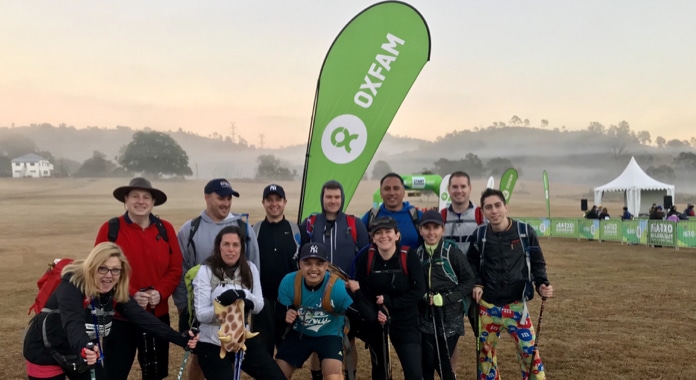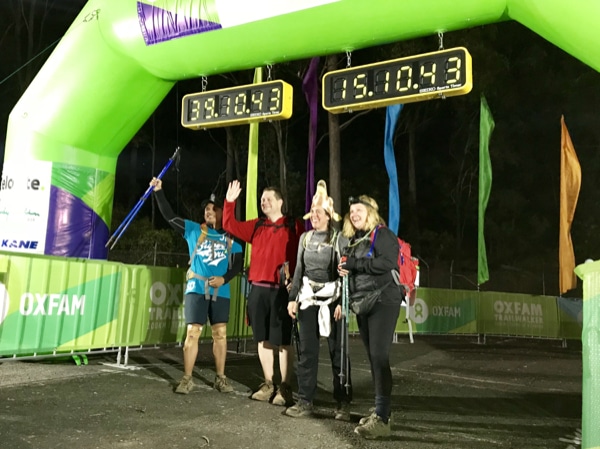
A group of QUT MBA students have ditched the classroom for the bush as part of a unique leadership study unit designed test their physical and psychological limits.
The “Adaptive Leadership” unit was custom built to incorporate OXFAM’s TrailWalker charity event and saw the students take part in a 55 kilometre wilderness hike through steep Queensland bush terrain.

Students who participated were required to form teams of four and raise a minimum of $1,400 for the charity event before embarking on the hike. From beginning to end, the unit pushed the students not only physically, but mentally as they learned what it meant to be an MBA-educated leader outside of the classroom
QUT MBA Director Glen Murphy said the OXFAM charity event was identified as the perfect platform to build the school’s leadership unit around, thanks to each of the elements it required of it participants.
“Importantly, in addition to leadership skills, the event required teams to draw down on essential MBA skills such as strategy, marketing, financial management, project planning, networking, negotiation and problem-solving,” he said.
“It was recognised that participating in the event would allow our MBA’s to showcase their talents to a broader audience and contribute positively to the broader community through the OXFAM event.

“Very few have “real world” consequences or a deliberately embedded leadership pedagogy.
“Therefore, what makes the QUT Adaptive Leadership unit innovative is its deliberate intent to put our students in uncomfortable, unfamiliar settings with real consequences to their actions, to highlight their various leadership strengths or weaknesses and create the catalyst for leadership development and growth.”
“You can only do so much in a classroom. The more you use simulations, the more you use experiential exercises, that’s really where people are going to be quite challenged, but have most potential to learn about themselves,” he said.
The “experiential” unit was open to all enrolled MBA students that had completed at least two-thirds of their degree. Five separate teams ultimately participated and through their fundraising for OXFAM’s event, managed to raise almost $30,000.

As with the real world, the consequences in the unit were real. If students did not raise the minimum amount of money, they could not participate in the walk and would not complete the unit. If a team failed to complete the course, they were disqualified, and if students failed to attend the unit’s workshops or successfully complete your assessment, they could not complete the walk.
In the lead up to the event, students had to undertake both individual and group-based assessments including the presentation of a project plan, development of a risk management strategy, reflections on their leadership journey throughout the activity and keeping a “blog diary” of their reflections and observations.
The unit was a tremendous success, at an individual level, institutional level and in relation to broader community engagement,” Professor Murphy said.
“Students participating reported significantly high levels of satisfaction with the unit outcomes and the effect on their leadership capabilities.
“At an institutional level, the QUT MBA received very positive exposure in terms of its engagement with the OXFAM event, the success of the teams and their fundraising, as well as the positive brand association with a respected charity event.”









